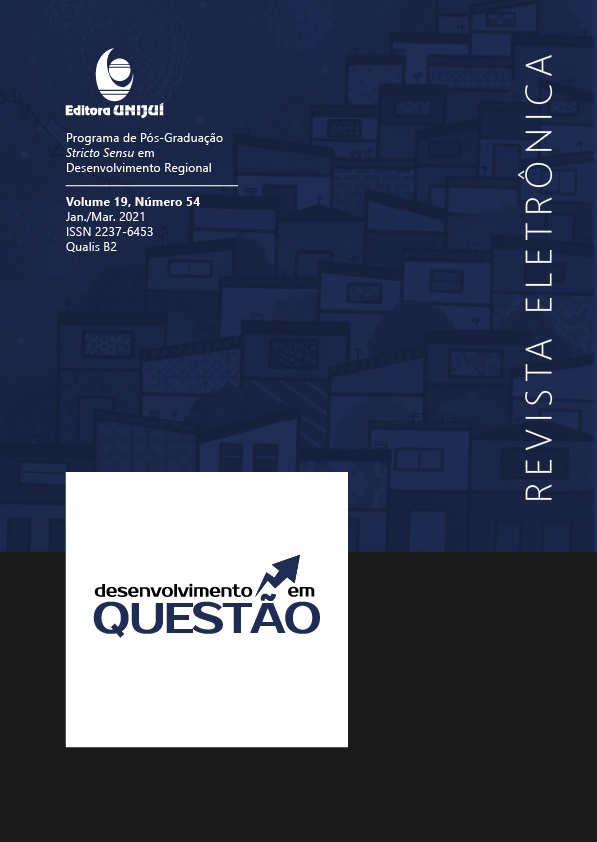THE MAIN CHALLENGES FOR THE POPULARIZATION OF INNOVATIVE PRACTICES IN SMART FARMING
DOI:
https://doi.org/10.21527/2237-6453.2021.54.204-217Keywords:
Smart Farms. Agriculture 4.0. Digital Agriculture.Abstract
Smart agriculture, a science that combines the advantages offered by agricultural 4.0 technologies and the already consolidated agricultural industry, offers a new concept of farm, intensive application of information and communication technologies. Its practices are recognized as a way out of the growing challenge of producing more food using fewer resources, in addition to meeting new and demanding more sustainable consumption patterns. Although the potential benefits of popularizing this farm model are recognized, there are several challenges to be overcome for these practices to be implemented and disseminated. The objective of this study is to identify the main challenges to be overcome for the popularization of these practices. A systematic integrative review of publications available in the databases: Scopus, Web of Science, Science Direct; Spell and Scielo, is presented. The results show that the main challenges are: (1) Digital Infrastructure, (2) Qualification, (3) Insecurity and Mistrust, (4) Integration and Customization and (5) Capital and Credit.
Downloads
Published
How to Cite
Issue
Section
License
By publishing in Revista Desenvolvimento em Questão, authors agree to the following terms:
All works are published under the Creative Commons Attribution 4.0 International License (CC BY 4.0), which allows:
Sharing — to copy and redistribute the material in any medium or format;
Adaptation — to remix, transform, and build upon the material for any purpose, even commercially.
These permissions are irrevocable, provided that the following terms are respected:
Attribution — authors must be properly credited, a link to the license must be provided, and any changes made must be indicated.
No additional restrictions — no legal or technological measures may be applied that legally restrict others from doing anything the license permits.
Notices:
The license does not apply to elements that are in the public domain or covered by legal exceptions.
The license does not grant all necessary rights for specific uses (e.g., image rights, privacy, or moral rights).
The journal is not responsible for the opinions expressed in the articles, which are the sole responsibility of the authors. The Editor, with the support of the Editorial Board, reserves the right to suggest or request modifications when necessary.
Only original scientific articles presenting research results of interest that have not been previously published or simultaneously submitted to another journal with the same purpose will be accepted.
Mentions of trademarks or specific products are intended solely for identification purposes and do not imply any promotional relationship by the authors or the journal.
License Agreement (for articles published from 2025 onward): Authors retain the copyright to their article and grant Revista Desenvolvimento em Questão the right of first publication.











